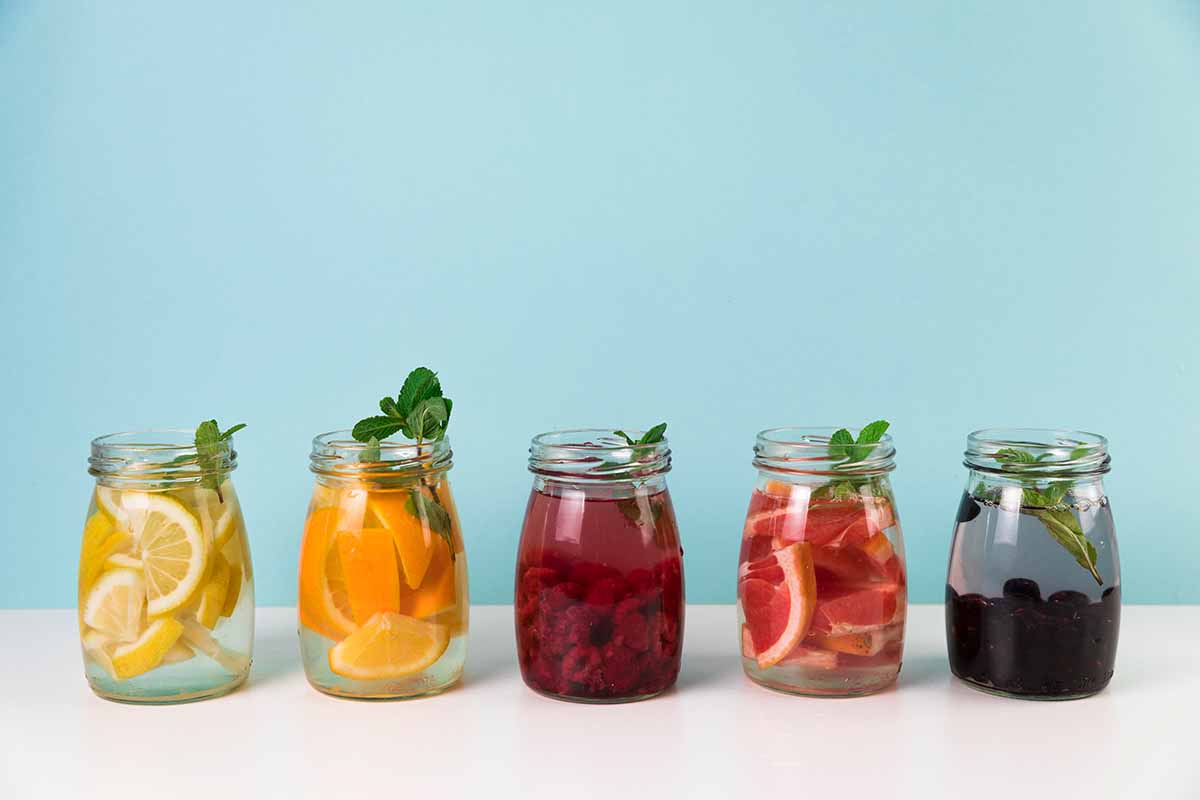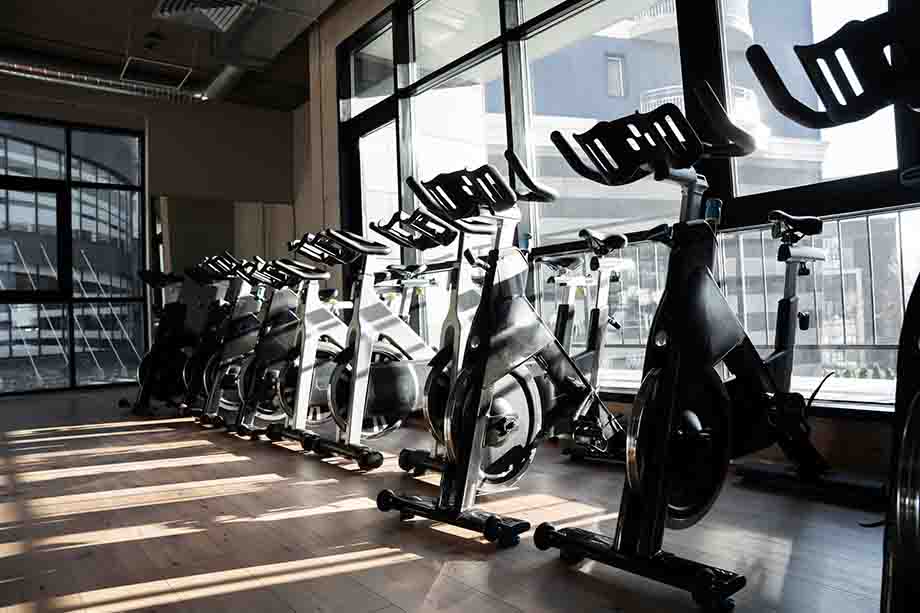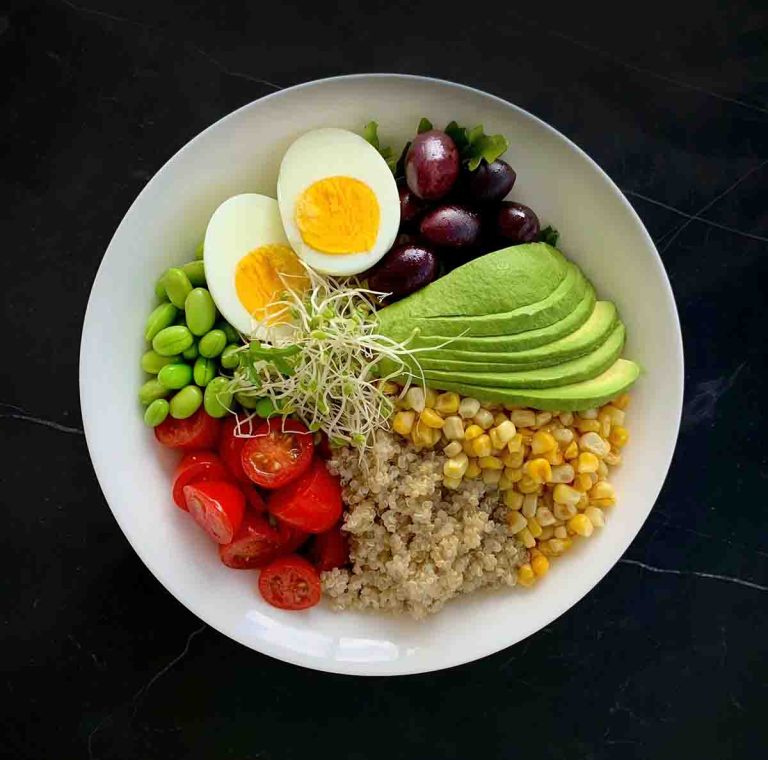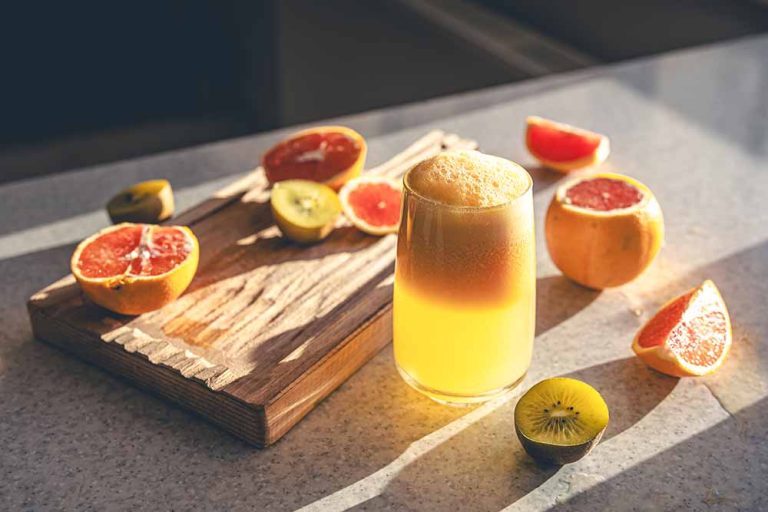Natural Sports Drinks: The Ultimate Guide to Homemade Electrolyte Drinks
Natural Sports Drinks: The Ultimate Guide to Homemade Electrolyte Drinks.
Did you know that many commercial sports drinks are filled with artificial colors, flavors, excess sugar, and preservatives – added chemicals?
In this article, we’re going to look at everything you need to create effective, mineral-replenishing, delicious homemade sports drinks that support performance without the drawbacks of commercial options.
Yes, diy sports drinks recipes!
We’ll explore natural hydration options that can replenish minerals, support energy needs, and accelerate recovery—all without artificial additives. Whether you’re looking to save money, reduce plastic waste, or simply put better ingredients into your body, these natural sports drink alternatives have you covered.
1. Understanding Hydration and Energy During Exercise
When you exercise, your body goes through important changes that require proper support to maintain performance and health.
What Happens When You Sweat
During a workout, your body releases sweat to cool down. This isn’t just water leaving your body – it’s also minerals (called electrolytes) that keep your muscles working properly. Think of electrolytes as your body’s natural power conductors. Without them, your muscles can cramp, you might feel dizzy, and your performance suffers.
Electrolytes lost during running and exercise directly affects an athlete’s overall performance. Moderate to severe dehydration hinders aerobic exercise and increases physiological strain – in other words, it makes your body work harder than necessary.
The main electrolytes you lose through sweat are:
- Sodium: Helps maintain fluid balance and supports nerve function
- Potassium: Prevents cramping and supports heart function
- Magnesium: Important for muscle relaxation and energy production
- Calcium: Essential for muscle contractions
Your Body’s Energy System
Your muscles need fuel during exercise, like a car needing petrol, to run faster, cycle further, lift more and lift heavier.
This fuel primarily comes from carbohydrates, which your body breaks down into glucose—your muscles’ preferred energy source during moderate to high-intensity activity.
During shorter workouts, your body uses the energy stored in your muscles. For longer sessions (over 60 minutes), you need to replenish this energy to maintain performance. This is why sports drinks contain some form of sugar—it’s quick fuel for working muscles.
“The carbohydrate is the cheapest part of the sports drink,” says sports nutritionists. “Sugar water is not fancy but can be as effective, and if you add a couple of shakes of salt, you have a drink that’s comparable to a sports drink at a fraction of the cost.”
Why Plain Water Isn’t Always Enough
For quick workouts or light activities, water works perfectly fine. But when exercise becomes more intense or lasts longer, water alone can’t replace everything you’re losing. This is where natural sports drinks come in—they provide:
- The water you need for basic hydration
- The electrolytes lost through sweat
- Quick energy to keep your muscles working efficiently
When to Use Sports Drinks vs. Water
Not every workout requires a sports drink. Here’s a simple guideline:
- Water is sufficient for:
- Workouts under 60 minutes
- Light to moderate intensity exercise
- Strength training sessions
- Sports drinks are beneficial for:
- Workouts lasting more than 60 minutes
- High-intensity exercise with heavy sweating
- Endurance activities (running, cycling, etc.)
- Team sports with intermittent high-intensity efforts
- Hot weather conditions
If you’re a salty sweater (noticing white salt deposits on your clothes after workouts) or exercising in hot conditions, replacing electrolytes becomes even more important.
2. Natural Hydration Options
Nature provides several excellent alternatives to commercial sports drinks. Each option has unique benefits depending on your specific needs.
Natural Mineral Water (And sparkling natural mineral water)
Natural mineral water stands out for its purity and mineral content. Sourced from underground springs, it contains dissolved minerals that are highly bioavailable – meaning our bodies can absorb them easily. The key minerals include magnesium, essential for ATP production (our body’s energy unit), and calcium, crucial for muscle function.
Sparkling mineral water offers the same benefits with the addition of natural carbonation, which some athletes find refreshing and easier to consume during exercise. The natural bubbles can help settle the stomach during intense activity and provide a pleasant alternative to still water. Premium brands like San Pellegrino, Perrier, and local brand Spritzer mineral waters contain significant quantities of essential minerals that support hydration and recovery.
While mineral water doesn’t provide immediate energy, it supports the body’s energy production systems and helps maintain optimal hydration levels without any artificial additives.
Best for: Daily hydration, light to moderate exercise, and mineral replenishment
Coconut Water: Nature’s Sports Drink
Often called “nature’s sports drink,” coconut water has an electrolyte profile remarkably similar to human blood plasma. Its high potassium content helps prevent muscle cramps, while its natural sugars provide quick energy. What sets coconut water apart is its rich content of cytokinins – compounds with anti-aging and anti-cancer properties.
Coconut water contains approximately 6g of sugar per 250ml, 252mg sodium, and 600mg potassium, making it an excellent natural alternative to commercial sports drinks. The natural carbohydrates in coconut water make it particularly effective for longer workouts lasting over 60 minutes.
Best for: Moderate to intense exercise, hot weather training, and natural energy boost
Watermelon Juice: The Recovery Specialist
Watermelon juice is unique for its L-citrulline content, an amino acid that helps reduce muscle soreness and supports recovery. It’s also rich in potassium and provides natural sugars for energy replenishment. The high water content (92%) makes it excellent for hydration, while its antioxidants help combat exercise-induced oxidative stress.
Studies have shown that watermelon juice can help reduce muscle soreness and recovery time after intense exercise, making it an excellent post-workout option.
Best for: Post-workout recovery, reducing muscle soreness, and summer training

Barley Water: The Endurance Enhancer
A traditional drink used across Asia for centuries, barley water offers a unique combination of complex carbohydrates, beta-glucans, and minerals. It provides sustained energy release, making it ideal for endurance activities. The selenium content supports immune function, while its anti-inflammatory properties aid recovery.
Barley water can be particularly beneficial for long-distance runners and athletes engaged in extended training sessions, providing steady energy without the spikes and crashes of simple sugar solutions.
Best for: Endurance training, sustained energy needs, and digestive health
Here’s a quick comparison of these natural hydration options:
| Drink Type | Key Minerals | Natural Sugars | Calories/250ml | Best Use Case |
|---|---|---|---|---|
| Mineral Water (Still/Sparkling) | Magnesium, Calcium, Bicarbonate | None | 0 | Daily hydration, Light exercise |
| Coconut Water | Potassium, Sodium, Magnesium | 6g | 46 | Moderate exercise, Hot weather |
| Watermelon Juice | Potassium, Magnesium, L-citrulline | 8g | 54 | Post-workout recovery |
| Barley Water | Calcium, Iron, Selenium | 2g | 32 | Endurance training |
Finding Your Perfect Natural Hydration Match
As you can see, nature offers us several fantastic options for staying hydrated during and after exercise. From mineral-rich water for everyday needs to potassium-packed coconut water for moderate workouts, each natural drink has its unique strengths.
But how do you know which drink is right for your specific workout? The answer depends on several factors including how long and how hard you’re exercising, the weather conditions, and your personal preferences. Let’s look at how to match the perfect natural drink to your specific activity needs.
3. Homemade Sports Drink Recipes
While natural waters provide excellent hydration benefits, creating your own homemade sports drinks gives you complete control over ingredients and flavors. Here are top recipes that deliver optimal hydration and energy support without artificial ingredients:
Basic Formula for Homemade Sports Drinks
Every effective sports drink contains three essential components:
- Water – Base for hydration
- Sugar/Carbohydrates – Energy source for working muscles
- Salt/Electrolytes – Replace minerals lost through sweat
The ideal carbohydrate concentration is 6-8% (60-80g per liter), which research shows is optimal for fluid absorption without causing stomach upset.
1. The Basic Natural Sports Drink
This simple recipe provides the perfect foundation and can be customized to suit your taste preferences.
Ingredients:
- 1 liter water (still or sparkling mineral water optional)
- 4-5 tablespoons sugar or honey
- ¼ teaspoon sea salt or Himalayan pink salt
- Juice from one lemon or lime (optional for flavor)
Directions:
- Combine all ingredients in a large container
- Stir or shake until sugar and salt dissolve completely
- Refrigerate until needed
Best for: General workout recovery, basic hydration needs, customizing with additional ingredients
2. Coconut Electrolyte Refresher
Ingredients:
- 500ml coconut water
- 500ml filtered water (or sparkling mineral water for extra refreshment)
- ¼ teaspoon sea salt
- 1 tablespoon honey
- Juice of one lime
Directions:
- Mix all ingredients in a pitcher
- Stir until honey dissolves completely
- Chill before serving
Best for: Hot weather workouts, moderate-intensity exercise lasting 30-60 minutes
3. Watermelon Recovery Drink
Ingredients:
- 750ml fresh watermelon chunks
- 250ml water (still or sparkling mineral water)
- Pinch of sea salt
- Juice of one lime
- Small handful of fresh mint leaves (optional)
Directions:
- Blend watermelon chunks until smooth
- Strain if desired for a smoother consistency
- Add water, salt, and lime juice
- Stir in mint leaves if using
- Refrigerate until ready to enjoy
Best for: Post-workout recovery, reducing muscle soreness, summer training
4. Citrus Mineral Booster
Ingredients:
- 900ml cold water (still or sparkling mineral water works well)
- 60ml fresh orange juice
- 30ml fresh lemon juice
- 30ml fresh lime juice
- 2 tablespoons honey
- ¼ teaspoon sea salt
- ⅛ teaspoon calcium-magnesium powder (optional)
Directions:
- Combine juices, sweetener, and salt in a pitcher
- Add calcium-magnesium powder if using
- Pour in water and stir until everything is well-mixed
- Refrigerate until chilled
Best for: Longer workouts (60+ minutes), intense exercise sessions, complete mineral replenishment
5. Herbal Tea Electrolyte Drink
Ingredients:
- 1 liter brewed herbal tea (red raspberry leaf, nettle, or green tea work well)
- ¼ teaspoon sea salt
- 1 teaspoon calcium magnesium powder
- 60ml apple or grape juice
- 1-2 tablespoons honey (optional)
Directions:
- Brew tea and let cool slightly
- Add sea salt and calcium magnesium powder and stir until dissolved
- Mix in juice and honey if using
- Refrigerate until cool
Best for: Daily hydration with added health benefits, lighter workout recovery
6. Ginger-Mint Performance Drink
Ingredients:
- 750ml water (sparkling mineral water can be used for part of the water)
- 2.5cm piece fresh ginger, peeled and sliced
- Small handful fresh mint leaves
- 2 tablespoons honey
- ¼ teaspoon sea salt
- Juice of one lemon
- 60ml coconut water
Directions:
- In a small pot, simmer water with ginger and mint for 5 minutes
- Remove from heat and strain
- Add honey and salt while liquid is still warm, stir to dissolve
- Add lemon juice and coconut water once cooled
- Refrigerate until chilled
Best for: Digestive support during exercise, reducing exercise-induced nausea, supporting circulation
7. Natural Electrolyte Sports Drink
This professional-grade natural alternative provides complete electrolyte replacement:
Ingredients:
- 1 liter fresh cold water (or half still/half sparkling mineral water)
- 3 tablespoons honey
- ½ teaspoon fine sea salt or Himalayan pink salt
- ¾ teaspoon calcium magnesium powder (optional)
- Pinch of cayenne pepper (optional)
- 180ml freshly squeezed orange juice
- Juice of 2 lemons
- Juice of 2 limes
Directions:
- Pour 250ml of water into a pot
- Add sweetener, salt, calcium-magnesium powder, and cayenne if using
- Place over low heat and stir until ingredients dissolve
- Remove from heat and cool to room temperature
- Add fruit juices and remaining water
- Stir until well blended
Best for: Endurance sports, long training sessions, complete mineral replenishment
4. Making the Right Choice for Your Workout
Timing and Activity Level
For optimal hydration and performance, match your drink to your activity:
- For daily hydration and light exercise (<30 minutes): Mineral water (still or sparkling) is ideal
- For moderate exercise (30-60 minutes): Basic natural sports drink or coconut water
- For intense workouts (>60 minutes): Rotate between coconut water and citrus mineral booster
- For endurance training: Start with natural electrolyte sports drink, switch to watermelon recovery drink afterward
What is Rehydration?
✅ Rehydration means replacing lost water
✅ And often, it includes replenishing minerals (electrolytes)
If you only drink plain water after intense or long-duration workouts, you might replace the fluid but not the minerals — which can lead to muscle cramps, fatigue, or even dizziness.
Practical Tips for Natural Hydration
Remix: Creating Natural Sport Drink Varieties
Don’t be afraid to experiment with these recipes to find what works best for your body and taste preferences:
- Mix mineral water with fresh lemon juice for enhanced mineral absorption
- Try sparkling mineral water when you need refreshment during hot weather
- Blend watermelon juice with mineral water to reduce sugar content
- Combine coconut water with a pinch of salt for higher-intensity workouts
- Dilute barley water with mineral water for lighter carbohydrate intake
Storage and Preparation
To maintain freshness and effectiveness:
- Store mineral water at room temperature to preserve mineral content
- Keep homemade sports drinks refrigerated and use within 1-3 days
- Prepare fresh watermelon juice just before consumption
- Use glass containers when possible to reduce plastic exposure
- Make concentrated versions to dilute later for more convenience
Cost-Effective Strategies
Save money while maintaining quality:
- Buy mineral water in bulk for daily use
- Make your own barley water from whole grains
- Use fresh watermelon during season and freeze portions
- Reserve coconut water for specific training days
- Prepare homemade concentrates that can be diluted on demand
5. Benefits of Homemade vs. Commercial Sports Drinks
Nutritional Advantages
Homemade sports drinks offer several benefits over commercial options:
- No artificial ingredients – Avoid colors, flavors, and preservatives
- Controlled sugar content – Add only what you need for your specific workout
- Superior mineral profile – Natural ingredients provide a wider range of trace minerals
- Fresher ingredients – Maximum nutritional value without long shelf life requirements
- Customizable for your needs – Adjust electrolytes based on your sweat rate and workout intensity
Environmental Impact
Making your own sports drinks helps minimize environmental impact:
- Lower overall plastic consumption – While still using some bottled products like mineral water, you’ll significantly reduce the total plastic waste compared to using commercial sports drinks for every workout
- Better recycling options – Glass bottles for mineral water are often more recyclable than sports drink bottles
- Lower carbon footprint – Fewer manufactured products means less environmental impact
- Reduced packaging waste – Raw ingredients often come in minimal or recyclable packaging
- Support for sustainable choices – Using fresh, local ingredients when possible reduces transportation impacts
Cost Comparison
The savings can be substantial when making your own sports drinks:
- Commercial sports drink: About three times more expensive per serving
- Homemade basic sports drink: Very economical, especially when made in batches for a group of people or the family
- Coconut water-based drink: Moderately priced but still cheaper than prepared sports drinks
Over a year of regular workouts, homemade options can save significant money while providing superior nutrition.
Listen to Your Body
Remember that while these natural alternatives are excellent choices, individual needs vary based on:
- Exercise intensity and duration
- Climate conditions
- Personal hydration needs
- Digestive tolerance
- Training goals
The best hydration strategy is one that works for your specific needs and helps you maintain optimal performance levels. Pay attention to how your body responds to different options and adjust accordingly.
For those who train intensely, especially in hot conditions, monitor your hydration status by checking:
- Urine color (should be pale yellow, not dark)
- Sweat rate (weigh yourself before and after long workouts)
- Energy levels during extended exercise
- Recovery rate between workout sessions
Final Thoughts
Commercial sports drinks have their place, but natural alternatives offer superior nutrition, fewer artificial ingredients, lower costs, and reduced environmental impact. By understanding the science behind hydration and creating your own sports drinks with wholesome ingredients, you can optimize your performance while taking better care of your body and the planet.
Whether you choose mineral-rich waters (still or sparkling), natural fruit juices, or custom-blended electrolyte drinks, the key is matching your hydration strategy to your specific needs. Experiment with the recipes provided, listen to your body’s responses, and discover the natural sports drink solution that works for you.
Your body deserves the best fuel possible—and nature already provides everything you need to stay hydrated, energized, and performing at your best.





